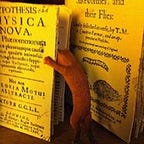7- Library Use
Weekly EEBO Etc.
This past week I was on vacation and furlough, so my activity was much more substantive and sustained. I used my library & many others by using Interlibrary Loan and electronic resources made available to readers by the Folger Shakespeare Library. [I wrote about weeks 1, 2, 3, 4, 5, 6].
I read two articles by Ian Archer (whose book, The Pursuit of Stability [Cambridge 1996] I also bought and began skimming last month): A Gazetteer of military levies, which he’s made freely available in the hopes that others will do work on these records, and this essay:
If you aren’t interested in taxes, you just might not be interesting to me (just kidding, but I think taxation is a fascinating, if also occasionally hard subject for me to understand)!
As in previous weeks, a lot of my reading this week centered around the City of London and a play set there, The Knight of the Burning Pestle.
I re-read Tracey Hill’s essay, as shown above (along with a doctoral thesis by AP House that cites in her essay) and two essays on children in the play, by Laurie Anderson and Claire Busse, respectively.
I also used the Cecil Papers, courtesy of the Folger, to look at a few things related to London musters. It reminded me how much I love reading manuscript documents — and how nice it is when somebody’s already transcribed the salient features. I found many things worth having at hand for my current chapter draft, and also a fair number of things that will come in handy later on in other drafts.
I also found some random stuff, which is always fun, like this account of two 6 week-old lion cubs kept at the Tower of London. If you’re like me and devoured the last book by Hilary Mantel, The Mirror and the Light, you’ll remember that Cromwell is still alive when a Leopard is sent to an unspecified recipient. I vaguely remember seeing on twitter that James I/VI was sent an ostrich. Anyway, the author of this letter, Sir William Waad, notes how tender the mama lion is with her cubs and that “Their cry is altogether like young kitlings.” If you can read the hand — and I think you can because it’s very neat! — you will see that Mr. Waad is worried that chickens aren’t really the right food for them. The “feathers stick in their mouths” and “do greatly trouble them.”
Also, while reading some admittedly (more germane to my work) documents, I noticed the excuse used by this dude, Thomas Sackville, who explained that his “overeating of to[o] many grapes” meant that “it is not possible for [him] to come to the court.”
Honestly, does research get any better than that?
Thinking about overeating and illness reminds me that earlier in the week, prompted by an indexed item in Claire Bourne’s new book, I found myself looking for vomiting in early modern plays.
After remembering that I have transcriptions of most plays that were printed between 1550 and 1700 (thanks to attending the Visualizing English Print workshop at the Folger a few years ago) I realized I could do a quick search for vomit variants in plays. Here are some truly wonderful examples of barfing or references to it:
Research on the early modern period is the best!
So there you have it. I relied on libraries in addition to my own, but I’m still grateful for my university’s librarians and the time they spent helping me get the articles via ILL. My day-job doesn’t afford this kind of free research time and so I’m already feeling sad my vacation time will end, even though I still have 6 days left.
